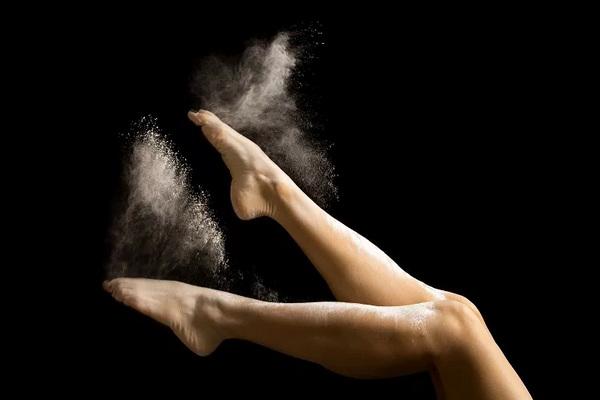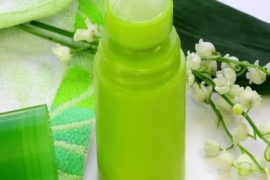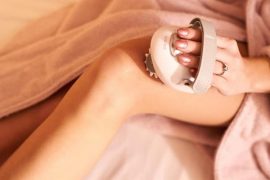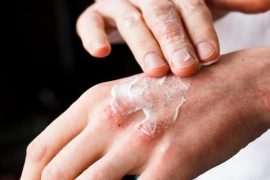Зміст
Do persistent sweaty feet rob you of your comfort and confidence? Do you want to know what could be the causes of your problem? What to avoid, what increases sweating and how to regulate it without disturbing the body’s thermoregulation.
Where does foot hyperhidrosis come from?
The whole body sweats all the time. Under normal conditions, we excrete about 800 ml of sweat per day. All this in order to properly cool the body and get rid of toxins. The warmer or the more we exercise, the more water we lose. This is not surprising, since there are 2 to 4 million sweat glands in our skin. In addition, the feet (near the arms and armpits) are much more responsive to emotional stimuli than the rest of the body.
When you find yourself sweating, too much compared to your body’s current needs, take action. Why? Excessive sweating of the feet can lead to the development of fungal and bacterial infections. The bad smell is caused by the metabolism of bacteria.
Hyperhidrosis of the feet: causes
It is worth knowing that the causes of foot hyperhidrosis are divided into primary and secondary.
First, it is about genes. You may have inherited excessive sweating from an ancestor, and your sweat glands are overstimulated by the sympathetic nervous system.
Secondary causes of hyperhidrosis can be associated with certain medications (such as antibiotics or antidepressants), stimulants (alcohol or caffeine), unhealthy lifestyles, medical conditions (such as cancer, diabetes, obesity, hyperthyroidism, and anxiety disorders), pregnancy, menopause, or nervous system trauma…
Excessive sweating of the feet: what to do?
If you are increasingly wondering how to reduce leg sweating, consider the solutions below.
- Home remedies for excessive foot sweating
- Consume infusion of sage (1-2 glasses a day) – it prevents excessive sweating.
- Drink lemon balm infusion (1-2 glasses a day) – it soothes, so it helps to eliminate one of the causes of excessive sweating: the feeling of stress.
- Soak your feet in herbal baths (sage, chamomile, oak bark, birch, herbal salts). They will help limit the development of bacterial flora on the surface of the skin and regulate the work of the sweat and sebaceous glands. In addition, they have anti-inflammatory and astringent properties.
- Wash your feet often (at least twice a day).
Cosmetics for excessive sweating of the feet:
Use an antiperspirant for your feet to treat the problem. These are the same products that we use every day, just for the legs. They contain aluminum salts that kill bacteria and block drainage channels outward. This is not harmful because the accumulated sweat eventually displaces the blockage, which is why antiperspirants have a limited duration of action.
Blocking sweating in such a small area of the body does not negatively affect the thermoregulation of the body. There are about 600 sweat glands on one square centimeter of the skin of the feet, which is 2% of all that a person has.
In addition to antiperspirants, there are also foot deodorants on the market. Their main function is to limit the growth of bacteria and fungi, as well as refresh the skin and remove unpleasant odors.
Remedies for excessive foot sweating
If standard methods do not work and sweating really bothers you, seek help from a specialist, who will suggest one of the following treatments:
Iontophoresis is a medical procedure using an electric current. It sounds ominous, but it is harmless, harmless and helps to regulate the activity of the sweat glands. What is it about? The feet are immersed in water and a current is passed through it. This paralyzes the ion channels that are found in the sweat glands. The procedure takes 15 to 20 minutes. It will take 10–15 visits to effectively reduce the amount of sweat. After a few months, the series of procedures should be repeated.
The price of one procedure is very affordable
Intradermal injection of botulinum toxin (neurotoxin, also known as botulism) – it is used in aesthetic medicine and has a therapeutic effect in the appropriate dose. It is injected under the skin in places where sweat glands rage. Prevents the transmission of nerve impulses, stimulates the glands that produce sweat. The whole procedure takes about 30 minutes. This is very effective, but it needs to be repeated once a year.
What should I avoid if my feet are sweating excessively?
Avoid wearing airtight shoes, plastic shoes, socks, and non-absorbent pantyhose (made of artificial materials). Try to take off your shoes and, if possible, “ventilate” your feet.








